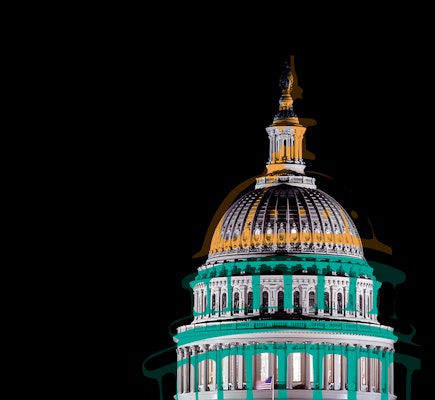2022 Annual Meeting
Pre-Meeting Symposium

Polarization, Partisanship, and Disinformation: What Is Higher Education’s Response?
Political polarization, partisanship, and disinformation are undermining democracy around the world. The symposium will provide opportunities for campus stakeholders to discuss how higher education should respond.
- How can higher education prepare students to be discerning consumers of information in the face of increasingly sophisticated campaigns to manipulate the truth and shape public opinion?
- What types of curricular and cocurricular initiatives are most effective in helping students hone their information literacy and civic skills?
- How should the higher education community respond to anti-intellectualism and assaults on truth?
- How can higher education model and transmit the norms and values that enable civil discourse, fuel the pursuit of social justice, and sustain democracy?
This event will be held virtually. Separate registration and fee are required.
Agenda
All times are Eastern.
9:00 – 10:15 am | Opening RemarksOpening Plenary on Academic FreedomIndividual Perspectives Followed by Q&A Ronald Daniels, President, Johns Hopkins University; Summer Lopez, Senior Director, Free Expression Programs, PEN America; Cynthia Miller-Idriss, Professor, School of Public Affairs and School of Education, American University Moderator: Lynn Pasquerella, AAC&U President |
10:30 – 11:30 am | Second Plenary on Responding to Polarization, Partisanship, and DisinformationLanisa Kitchiner, Chief, African and Middle Eastern Division, Library of Congress, Paul Lannon Jr., Partner, Holland & Knight LLP and Frederick Lawrence, Secretary and CEO, Phi Beta Kappa Society Moderator: Nancy Cable, Chancellor, University of North Carolina – Asheville |
11:30 am - 1:30 pm | Lunch Break and Individual Screening of TRUST ME: How Do you Know What to Believe?Registered participants will receive a code via email to access the online screening of this film. |
1:30 – 2:30 pm | Afternoon Panel - Trends in Higher EducationWilliam Cox Jr., Vice President of Operations & Advertising, Diverse, and Scott Jaschik, Editor, Inside Higher Ed Moderator: Brooke Barnett, Interim Provost, Vice President for Academic Affairs and Professor, Butler University |
2:30 – 3:30 pm | Afternoon Concurrent Sessions |
Academic Freedom For What? Education for Democracy in QuestionAcademic freedom is vital to the teaching, research and public mission of our nation’s colleges and universities. As both a right and a responsibility, academic freedom is facing an array of challenges that rarely operate in a vacuum—often, other core values essential for civic education are jointly at stake. This panel will explore the interconnections between growing authoritarianism, racial inequality, and eroding democratic governance in the United States as critical to understanding the scope of threats to academic freedom and offer observations and strategies to rebuild the trust in and support for higher education necessary to educate for a stronger, more just democracy. Chelsea Blackburn Cohen, Scholars at Risk Network; Demetri Morgan, Loyola University Chicago, and Nancy Thomas, Tufts University | |
Democratic implications of reflection: findings from integrative learning research at UM-FlintThis panel will describe advances made by a multi-disciplinary faculty working group to expand the use of “signature assignments” and study their impacts on democratic engagement. We will share qualitative and quantitative data from three years of surveys and artifact collection and present preliminary results from a new survey on the use of reflection in assignment design. These findings will be used to explore and contextualize the democratic elements of signature assignments and to open a conversation with others on how reflection is a powerful tool for democratic engagement. Stephanie Roach, University of Michigan-Flint; Jennifer Alvey, University of Michigan-Flint; Tracy Wacker, University of Michigan-Flint; Kazuko Hiramatsu, University of Michigan-Flint; Rajib Ganguly, University of Michigan-Flint | |
Transforming Liberal Education Within Small Colleges: A "Village Commons" Approach to Democracy and DiversityIn a deeply divided nation, small liberal arts colleges are uniquely positioned to engage and welcome diverse students from high schools in neighboring communities. SLACs can redesign their Gen Ed curriculum for such students to center on critical issues facing local communities, states, our nation, and our world. The session will highlight efforts at Antioch College, Yellow Springs, and Molloy College on Long Island, to work with the non-profit New American Baccalaureate Project, rededicate their institutions to serve a broader range of regional students while they gain skills and dispositions essential for success in today's complex organizations and enterprises. Robert Fried, Northeastern University (retired); Christopher Malone, Molloy College; Shadia Alvarez, Antioch College, Yellow Springs; Eli Kramer, University of Vroclaw, Poland; Daniel McGann, Molloy College | |
| 3:30 – 4:00 pm | Closing Remarks |